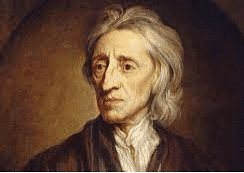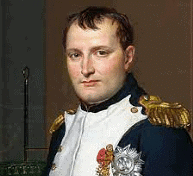The French Revolution Class 9 Worksheet History Chapter 1
Q.1. Fill in the blanks.
(i) ________ sought to refute the doctrine of the divine and absolute right of the Monarch.
Ans: Locke
Locke challenged the idea that monarchs have a divine right to rule, advocating for the rights of individuals and the concept of government by consent.
(ii) Louis XVI was sentenced to death by a court on the charge of _________.
Ans: treason
Louis XVI was convicted of treason against the French Republic, marking a significant moment in the French Revolution.
(iii) The slave trade began in the ________________ century.
Ans: seventeenth
The seventeenth century marked the beginning of the transatlantic slave trade, which had profound effects on societies involved.
(iv) Louis XVI was executed publicly at the _______________________.
Ans: Place de la Concorde
Louis XVI was executed at the Place de la Concorde, a pivotal event symbolizing the end of monarchy in France.
(v) On the morning of ___________, the city of Paris was in a state of alarm.
Ans: 14 July 1789
On 14 July 1789, the city of Paris experienced widespread panic and unrest, leading to the storming of the Bastille.
Q.2. Which term was used in France for newly elected assembly in 1791?
Ans: The term used in France for the newly elected assembly in 1791 was the National Assembly.
Q.3. What form of government was in practice in France in 1789?
Ans: Monarchy. In 1789, France was governed by a monarchy where the king had substantial power. Key points about this period include:
- The king was Louis XVI, ruling with absolute authority.
- France faced severe financial issues due to wars and lavish spending.
- Growing public discontent led to demands for change, paving the way for the French Revolution.
Q.4. When did the French Revolution break?
Ans: 14 July 1789 marked the beginning of the French Revolution.
- On this day, the people of Paris were alarmed by the king's orders to move troops into the city.
- Rumours spread that the army would attack citizens.
- A crowd of around 7,000 formed a militia and searched for arms.
- They stormed the Bastille, a fortress prison, seeking ammunition.
- The commander of the Bastille was killed, and a few prisoners were released.
- The Bastille symbolised the king's oppressive power and was subsequently demolished.
Q.5. When did France become a constitutional monarchy?
Ans: The year 1791 marked the beginning of a constitutional monarchy in France. Key developments included:
- The National Assembly completed the constitution to limit the monarch's powers.
- Power was divided among three institutions: the legislature, the executive, and the judiciary.
- This separation represented a major shift from the previous absolute monarchy.
- The Constitution granted law-making authority to the National Assembly, which was indirectly elected by citizens through a group of electors.
Q.6. What was the main object of the national assembly in France while drafting the constitution in 1791?
Ans: The main objective of the National Assembly in 1791 was to limit the powers of the monarch. Key aspects included:
- Separation of powers among the legislature, executive, and judiciary.
- Establishment of a constitutional monarchy.
- Law-making authority was vested in the National Assembly, which was indirectly elected.
Only men over 25 who paid certain taxes could vote, creating two categories of citizens: active and passive citizens.
Q.7. Who wrote the book two treatises of government?
Ans: John Locke wrote the book ‘Two Treatises of Government’. John Locke
John Locke
Q.8. Who followed the policy of severe control and punishment in France?
Ans: Robespierre was the leader who enforced a policy of severe control and punishment in France during the Reign of Terror.
He targeted those he considered enemies of the republic, including ex-nobles, clergy and members of rival political parties.
- Even his own supporters who disagreed with his methods
- Those arrested faced trials by a revolutionary tribunal.
- If found guilty, they were often executed by guillotine.
Robespierre believed that to protect the republic, it was necessary to use terror as a form of justice.
Q.9. Which was the most revolutionary social reform of the Jacobin regime?
Ans: One of the most revolutionary social reforms of the Jacobin regime was the abolition of slavery in the French colonies.
- The colonies, such as Martinique, Guadeloupe, and San Domingo, were crucial for producing commodities like sugar and coffee.
- Labour shortages on plantations led to a triangular slave trade involving Europe, Africa, and the Americas.
- In 1794, the Convention legislated to free all slaves in French overseas possessions.
- This reform was short-lived, as Napoleon reinstated slavery in 1804.
- Slavery was finally abolished in French colonies in 1848.
Q.10. In which year French women got the right to vote?
Ans: Women in France gained the right to vote in 1946.
Q.11. Who wrote the spirit of the laws?
Ans: Montesquieu wrote The Spirit of the Laws.
Q.12. In which book Rousseau mention the idea of one person, one vote?
Ans: The Social Contract. In his work, The Social Contract, Rousseau introduces the principle of one person, one vote. Key points include:
- Rousseau emphasises the importance of equality in voting.
- He argues that each individual's voice should count equally.
- This principle is foundational to democratic governance.
Q.13. What sort of clothes were worn by the Jacobins?
Ans: The Jacobins, who were part of the less affluent sections of society, adopted a unique style of clothing to express their identity. They typically wore:
- Long striped trousers are similar to those worn by dock workers.
- A red cap, which symbolised liberty.
This clothing choice helped them stand out from the fashionable nobles, who preferred knee breeches.
Q.14. Between which three countries was the triangular slave trade held?
Ans: The triangular slave trade occurred between three regions:
- Europe
- Africa
- The Americas
This trade began in the seventeenth century and involved the exchange of goods and enslaved people across these continents.
Q.15. Which period is referred to as the reign of terror?
Ans: The period from 1793 to 1794 is known as the Reign of Terror.
- Led by Robespierre, this era was marked by strict control and harsh punishments.
- Many were arrested, including former nobles, clergy, and even political allies.
- Those found guilty were often executed by the guillotine.
- Robespierre's policies led to widespread fear, even among his supporters.
- He was ultimately arrested and executed in July 1794.
Q.16. Who was defeated in the battle of waterloo?
Ans: Napoleon Bonaparte was defeated at the Battle of Waterloo in 1815.  Napoleon Bonaparte
Napoleon Bonaparte
Q.17. Who wrote the book ‘The Social Contract’?
Ans: Rousseau wrote the book ‘The Social Contract’.
Q.18. What does a sceptre stand for?
Ans: A sceptre is a symbol that represents:
- Royal power
- Authority and governance
- Traditionally associated with monarchs
It signifies the ruler's right to govern and their leadership role.
|
55 videos|525 docs|78 tests
|
FAQs on The French Revolution Class 9 Worksheet History Chapter 1
| 1. What were the main causes of the French Revolution? |  |
| 2. What were the key events during the French Revolution? |  |
| 3. How did the French Revolution impact the rest of the world? |  |
| 4. What were the outcomes of the French Revolution? |  |
| 5. How did the French Revolution influence modern democracy? |  |

















